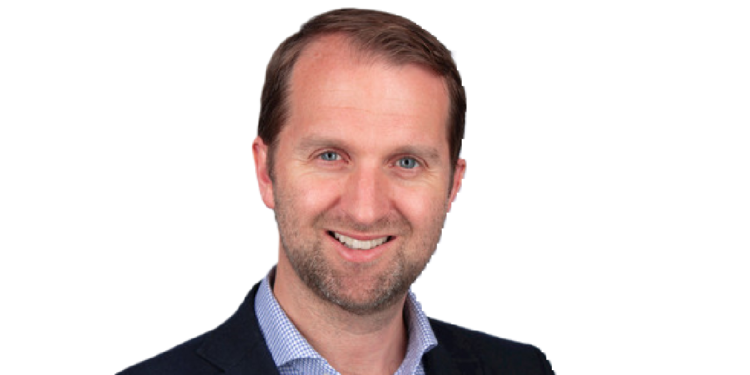While the number of employers offering private medical insurance (PMI) has soared to more than four in 10 over the past year, “flex pots” are increasingly becoming a cost-effective way for employers who cannot afford cover, to manage employee wellbeing.
This is according to Matt Russell, CEO of employee benefits platform, Zest, who was discussing the findings of its second Employee Benefits Report.
Launching the report, Russell (pictured) maintained that while demand for group PMI was soaring, rising premiums are proving too prohibitive for some firms.
This is leading them to consider alternative means of improving staff wellbeing such as implementing the use of ‘flex pots’.
Top employee benefit sought
Zest’s report which was based on findings from polls of 2,000 adults and 500 HR decision makers this summer, found that a third of employees want PMI, ranking it as the most sought after benefit.
This rises to 42% among employees aged over 55.
But as NHS waiting lists remain high, the message is hitting home among UK plc as 40% of employers now offer PMI, up from 14% last year.
Greater emphasis on wellbeing
However, employers are not just focused on providing PMI with the research indicating that more than three quarters (76%) of firms have introduced more wellbeing benefits and 66% have introduced a chief wellbeing officer.
But 62% of employees wanted greater choice of wellbeing benefits. This increases to 70% of 18-34 year olds and 80% of London workers.
Almost two thirds (65%) of employees wanted more personalised notifications about their benefits, yet only 51% of employers currently do this.
Hitting retention
The penalty for employers not taking these issues seriously was underlined with the data showing the majority (56%) of employees admitting they would leave their current job if another company offered them a better benefits package.
Just four in 10 (39%) employees believed their benefits package offers good value for money.
And around two-thirds (63%) of employees agreed that company benefits, such as pension contributions or healthcare, have become more important to them when deciding where to work.
Big shift
Speaking at this week’s breakfast event, Russell described the increased employer appetite for PMI as a “big shift”.
“Now 40% have offered private medical. That’s a really big shift because when we did this survey last year it was 14%,” Russell said.
But he added that the challenge for organisations is that premiums are “going through the roof”.
“Lots of people would like to offer it but the premiums are so expensive,” Russell continued.
“Organisations have taken note and listened to their employees and gone, we need to offer this.
“I think a lot of that is driven by the NHS and people are really struggling to get basic appointments.”
Shift to flex pots
For those organisations who cannot offer full PMI, Russell said the key was to listen to their employees and hold discussions on what is important to them.
“Some of the things that we’ve seen are things like a private GP, which is not as expensive, but you’re giving people the ability to get a GP appointment,” Russell continued.
“It’s cheaper. And the big shift that we’ve seen – certainly for smaller organisations – is ‘flex pots’.
“A good example of a flex pot or a flexible benefits pot is it is effectively a pot of money.
“You’re giving your people ‘x’ pounds to go and spend on whatever they want. And you could put some parameters around that.
“For some organisations it’s about giving a flex pot to spend on any benefits you want. For other organisations it’s about giving employees a pot of money around wellbeing.”
Russell explained that this was an approach Zest itself had employed.
“We give all of our employees a pot of money to spend on wellbeing,” he added.
“Wellbeing could be anything from learning to skydiving. One of my colleagues bought some new glasses. I bought a pair of trainers with mine.
“Jogging for me is really important for my wellbeing.
“We’re seeing more organisations say, ‘If we can’t afford private medical we’ll find a halfway house,’ which might be a private GP or it could be a flex pot or it could be an allowance per year or it could be a wellbeing day.”
More could be done
But there remains more that employers can do, Russell said.
“Lots of organisations are providing mindfulness and mindfulness support,” he said.
“There are lot of apps that don’t cost a lot of money that can help your people. But we know wellbeing is a massive issue.
“We know also that wellbeing in the workplace is dropping. So year-on-year it’s becoming a more challenging for organisations.
“And then you overlay it with the fact that people want more flexibility and choice.
“So it’s a really hard thing to solve because there is no one size fits all.”






